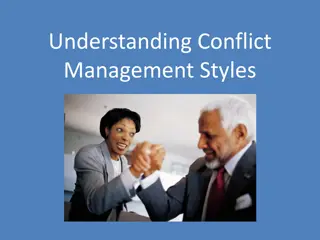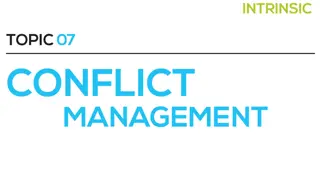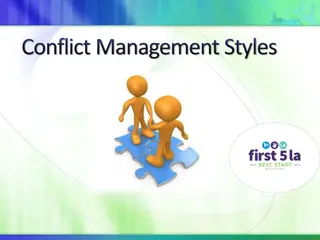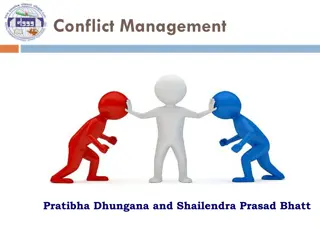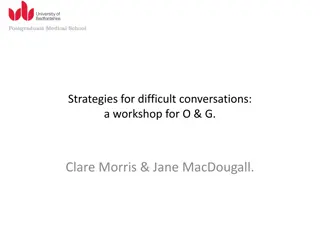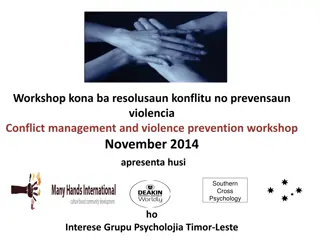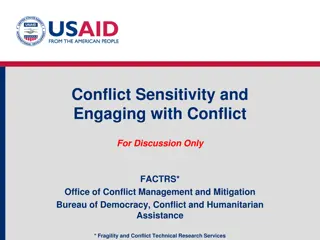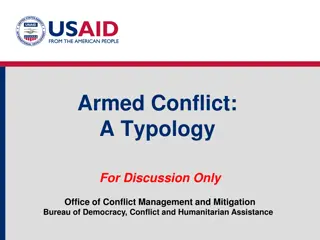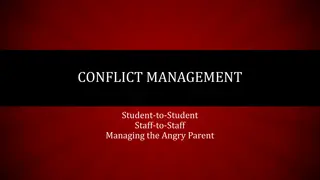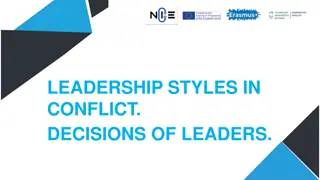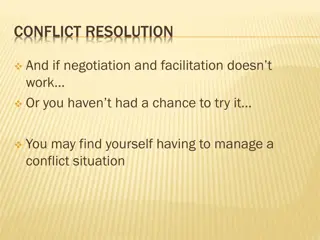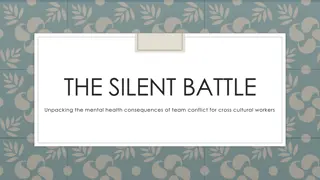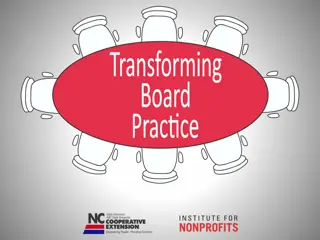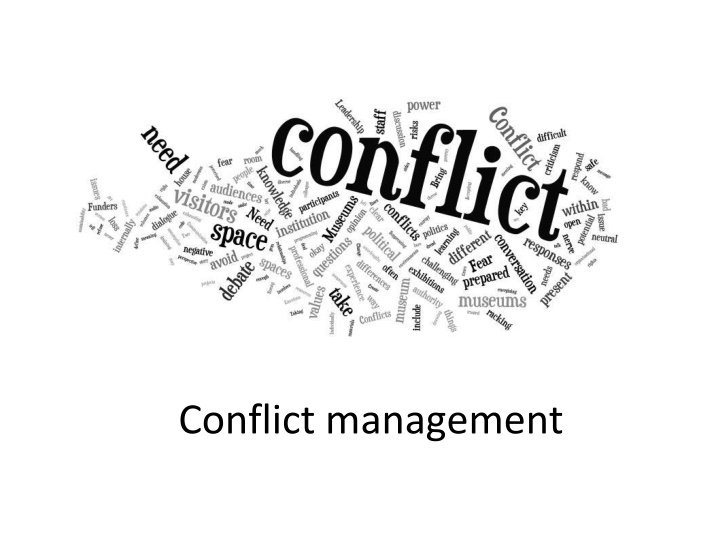
Effective Conflict Management Strategies in Interpersonal Relationships
Learn about the four types of conflicts - interpersonal, intrapersonal, intragroup, and intergroup - and their sources in work settings. Discover key causes such as poor communication, different values, scarce resources, personality clashes, and poor performance. Explore a real-life scenario and how to help resolve a conflict between friends by understanding emotions and communication.
Download Presentation

Please find below an Image/Link to download the presentation.
The content on the website is provided AS IS for your information and personal use only. It may not be sold, licensed, or shared on other websites without obtaining consent from the author. If you encounter any issues during the download, it is possible that the publisher has removed the file from their server.
You are allowed to download the files provided on this website for personal or commercial use, subject to the condition that they are used lawfully. All files are the property of their respective owners.
The content on the website is provided AS IS for your information and personal use only. It may not be sold, licensed, or shared on other websites without obtaining consent from the author.
E N D
Presentation Transcript
Conflict is classified into the following four types Interpersonal conflict refers to a conflict between two individuals. This occurs typically due to how people are different from one another. When interpersonal conflict gets too destructive, calling in a mediator would help so as to have it resolved. Intrapersonal conflict occurs within an individual. The experience takes place in the person s mind. Intragroup conflict is a type of conflict that happens among individuals within a team. The incompatibilities and misunderstandings among these individuals lead to an intragroup conflict Intergroup conflict takes place when a misunderstanding arises among different teams within an organization
Sources of conflict There are many causes or reasons for conflict in any work setting. Some of the primary causes are: Poor Communication: different communication styles can lead to misunderstandings between employees or between employee and manager. Lack of communication drives conflict underground .
Different Values: any workplace is made up of individuals who see the world differently. Conflict occurs when there is a lack of acceptance and understanding of these differences. Differing Interests: conflict occurs when individual workers fight for their personal goals, ignoring organizational goals and organizational well-being.
Scarce Resources: too often, employees feel they have to compete for available resources in order to do their job. In a resource scarce environment, this causes conflicts despite awareness of how scarce resources may be. Personality Clashes: all work environments are made up of differing personalities. Unless colleagues understand and accept each other s approach to work and problem-solving, conflict will occur. Poor Performance: when one or more individuals within a work unit are not performing - not working up to potential and this is not addressed, conflict is inevitable.
How would you help solve this conflict? Chris and Kelly have been friends for 10 years and have always spent a lot of time with each other. Chris recently became upset when Kelly started hanging out with other kids at school. Today at school, Chris heard a group of students say that Kelly doesn t like Chris any more. Chris became angry and went to find Kelly. You are a classmate of Chris and Kelly s, but you don t know them well. You are standing nearby and see Chris march up to Kelly and say, I hate you! You never do things with me anymore. I thought you were my friend! Kelly replied by saying, What do you mean? I ve always been your friend. Chris said, Don t you lie to me! Chris and Kelly continue to argue.
Conflict Management Strategies Compromise each party is concerned about their goal accomplishment and is willing to engage in give-and- take exchange to reach a reasonable solution.
Collaboration parties try to handle the conflict without making concessions by coming up with a new way to resolve their differences that leaves them both better off.
Accommodation one party simply gives in to the other party Avoidance two parties try to ignore the problem and do nothing to resolve the disagreement
Competition each party tries to maximize its own gain and has little interest in understanding the other s position


